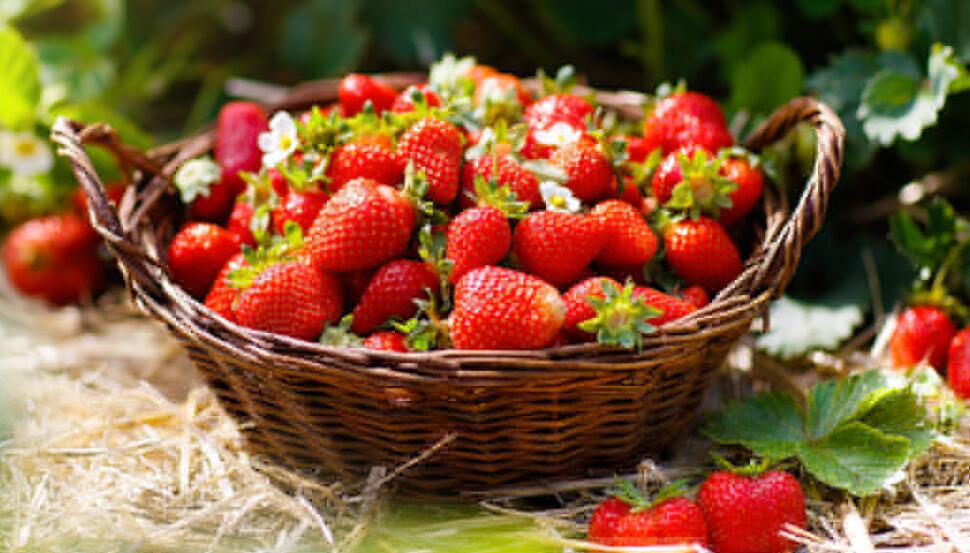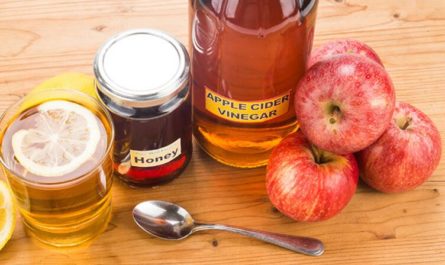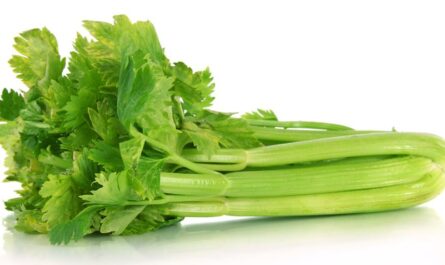Do strawberries have Vitamin C? The answer is YES! Strawberries are an excellent source of vitamin C. Just one cup of fresh strawberries provides a whopping 97.6 mg of vitamin C. This is a staggering 108% of the recommended daily intake for adults. So strawberries are one of the richest sources of vitamin C among fruits. This makes them a convenient and delicious way to boost your intake.

The Vitamin C Powerhouse
Vitamin C, also known as ascorbic acid, is a water-soluble vitamin with numerous vital functions in the body. It plays a crucial role in:
1. Immune function
Vitamin C is a potent antioxidant that helps protect cells from damage caused by free radicals, supporting a healthy immune system. By neutralizing these harmful compounds, vitamin C can help reduce inflammation and promote overall well-being. It also supports the production and function of white blood cells. These are essential for fighting off infections and diseases.
2. Collagen production
This vitamin is essential for the synthesis of collagen, a structural protein that provides strength and elasticity to skin, bones, and connective tissues.
Adequate collagen production is crucial for maintaining youthful, supple skin and strong bones, making vitamin C an ally in the fight against aging and osteoporosis. Collagen is also important for the health of blood vessels, muscles, and cartilage.
3. Wound healing
Adequate vitamin C levels are necessary for proper wound healing, as it aids in the formation of new tissue and blood vessels. This vitamin’s role in collagen production also contributes to its wound-healing properties, helping the body repair damaged skin and tissues more efficiently.
Vitamin C also supports the immune system’s response to injury, reducing the risk of infection and promoting faster recovery.
4. Iron absorption
Vitamin C enhances the absorption of non-heme iron (the type found in plant-based foods), making it an essential nutrient for individuals following a plant-based diet or those at risk of iron deficiency. Iron is crucial for the production of red blood cells and the transportation of oxygen throughout the body.

Beyond Vitamin C: Strawberries’ Nutritional Bounty
While vitamin C is undoubtedly the star nutrient in strawberries, these vibrant berries offer a wealth of other beneficial compounds. Here’s a closer look at their impressive nutritional profile:
1. Antioxidants
Strawberries are rich in antioxidants like anthocyanins, which give them their distinctive red color. These compounds help neutralize harmful free radicals and may offer protection against chronic diseases like cancer and heart disease.
Antioxidants also play a role in reducing inflammation. This is linked to various health issues, including arthritis, autoimmune disorders, and cognitive decline.
2. Fiber
A single serving of strawberries provides around 3 grams of fiber, which supports digestive health and may help regulate blood sugar levels.
Fiber is essential for maintaining a healthy gut and preventing constipation, while also contributing to feelings of fullness and satiety. This can aid in weight management and reduce the risk of obesity-related conditions like type 2 diabetes and heart disease.
3. Folate
Strawberries are an excellent source of folate, a B vitamin crucial for cell growth and development, particularly during pregnancy.
Adequate folate intake is essential for preventing neural tube defects in developing fetuses and supporting overall fetal growth. It also plays a role in DNA synthesis and repair, making it important for overall cellular health.
4. Manganese
This trace mineral plays a role in bone health, metabolism, and antioxidant defense mechanisms. Manganese is involved in the formation of connective tissues, bone mineralization, proteins, and cholesterol. It also supports the body’s natural antioxidant defenses, helping to protect cells from oxidative stress.
5. Potassium
Strawberries are a good source of potassium, an essential mineral that helps regulate blood pressure, muscle contractions, and fluid balance in the body.
Adequate potassium intake can also help counteract the effects of high sodium consumption. This is a common issue in modern diets and a risk factor for hypertension and cardiovascular disease.
6. Vitamin K
Often overlooked, vitamin K is present in strawberries and plays a crucial role in blood clotting and bone health. It helps the body produce proteins necessary for proper blood coagulation and supports the mineralization of bones, reducing the risk of osteoporosis.

How to Maximize Strawberry Nutrition
To reap the full benefits of strawberries’ vitamin C and other nutrients, it’s essential to handle and store them properly. Here are some tips:
- Choose fresh and ripe: Look for bright red, plump strawberries with a fresh green cap. Avoid berries that appear shriveled, moldy, or have white or green patches, as these may be underripe or overripe and lack optimal nutrient content.
- Store properly: Keep strawberries in the refrigerator, unwashed, and loosely covered with plastic wrap or a paper towel. This will help them retain their vitamin C content and prevent spoilage. Avoid storing them at room temperature, as this can accelerate nutrient degradation and spoilage.
- Wash before eating: Rinse strawberries under cool running water just before consuming them. Avoid soaking or washing them too far in advance, as this can lead to nutrient loss and spoilage. Gently pat them dry with a paper towel to remove excess moisture.
- Enjoy them fresh: While cooking can enhance the flavor of some fruits, it can also degrade the vitamin C content in strawberries. For maximum nutrient retention, enjoy them fresh or lightly cooked, such as in a quick sauté or baked dish.
- Consider organic: Choosing organic strawberries can help reduce exposure to pesticide residues, which may offer additional health benefits. However, both conventional and organic strawberries are excellent sources of vitamin C and other nutrients.
- Pair with vitamin C boosters: Certain compounds, like bioflavonoids found in citrus fruits, can enhance the absorption and utilization of vitamin C in the body. Combining strawberries with foods rich in these compounds can maximize the benefits of their vitamin C content.
How to Incorporating Strawberries into Your Diet
Strawberries are incredibly versatile and can be enjoyed in a variety of ways. Here are some delicious and nutritious ideas:
1. Smoothies
Blend fresh or frozen strawberries with yogurt, milk, or plant-based milk for a nutrient-packed smoothie. Add a handful of spinach or kale for an extra nutrient boost, or combine it with other fruits like bananas or mangoes for a tropical twist.
2. Salads
Add sliced strawberries to green salads for a burst of sweetness and color. Pair them with nuts, feta cheese, or a balsamic vinaigrette for a delightful flavor combination. Strawberries also pair well with savory ingredients like grilled chicken or shrimp for a refreshing and nutritious meal.
3. Parfaits
Layer yogurt, granola, and fresh strawberries for a satisfying and nutritious breakfast or dessert. Top with a drizzle of honey or a sprinkle of cinnamon for added flavor. You can also incorporate other fruits, like blueberries or raspberries, for a colorful and antioxidant-rich treat.
4. Salsas and sauces
Dice strawberries and combine them with savory ingredients like onions, jalapeños, cilantro, and lime juice for a refreshing salsa or sauce to accompany grilled meats, fish, or tacos. The sweetness of the strawberries can balance the heat and acidity of other ingredients, creating a unique and flavorful condiment.
5. Baked goods
Incorporate fresh or frozen strawberries into muffins, breads, or pies for a delightful twist on classic recipes. The natural sweetness of the berries can help reduce the need for added sugars, while also contributing moisture and a vibrant color to your baked treats.
6. Infused water
Add sliced strawberries to a pitcher of water for a refreshing and vitamin C-rich infused beverage. Muddle the berries slightly to release their juices and flavors. You can also add herbs like mint or basil for an extra burst of flavor.
7. Frozen treats
Blend frozen strawberries with yogurt or plant-based milk for a healthy and refreshing sorbet or “nice cream.” Add a touch of honey or maple syrup for sweetness, if desired. You can also freeze the strawberry puree in popsicle molds for a refreshing and nutrient-dense treat on hot summer days.
8. Strawberry vinaigrette
Pure fresh strawberries with balsamic vinegar, olive oil, and a touch of honey or Dijon mustard for a delicious and nutritious salad dressing. Drizzle it over mixed greens, or grilled vegetables, or even use it as a marinade for meats or tofu.
Other fruits rich in vitamin C
Here are some additional fruits that are rich in vitamin C:
- Acerola Cherries: These bright red cherries pack an incredible 1,677 mg of vitamin C per cup.This makes them one of the richest natural sources of this nutrient. Just 1/2 cup provides over 900% of the recommended daily value.
- Kakadu Plums: Native to Australia, these small green plums contain a staggering 2,900 mg of vitamin C per 100 grams, the highest known concentration of any fruit. A single plum can provide over 480% of the daily vitamin C needs.
- Rose Hips: The fruit of the rose plant, rose hips are an excellent source of vitamin C, with around 426 mg per 100 grams. They also contain other beneficial compounds like carotenoids and polyphenols.
- Lychees: These tropical fruits are not only delicious but also provide around 107 mg of vitamin C per cup, making them a great addition to a vitamin C-rich diet.
- Starfruit: Also known as carambola, starfruit is a unique tropical fruit that offers around 76 mg of vitamin C per cup, along with other nutrients like fiber and potassium.
- Grapefruit: While oranges are often associated with vitamin C, grapefruit contains more of this nutrient, with around 88 mg in a single medium-sized fruit.
Conclusion
Strawberries are a true superfood, offering an impressive array of nutrients, including a generous dose of vitamin C. By incorporating these vibrant berries into your diet, you can enjoy their delightful flavor while reaping the numerous health benefits they provide. So, the next time you’re looking for a vitamin C boost, reach for a handful of strawberries and let their ruby-red goodness nourish your body from the inside out.






